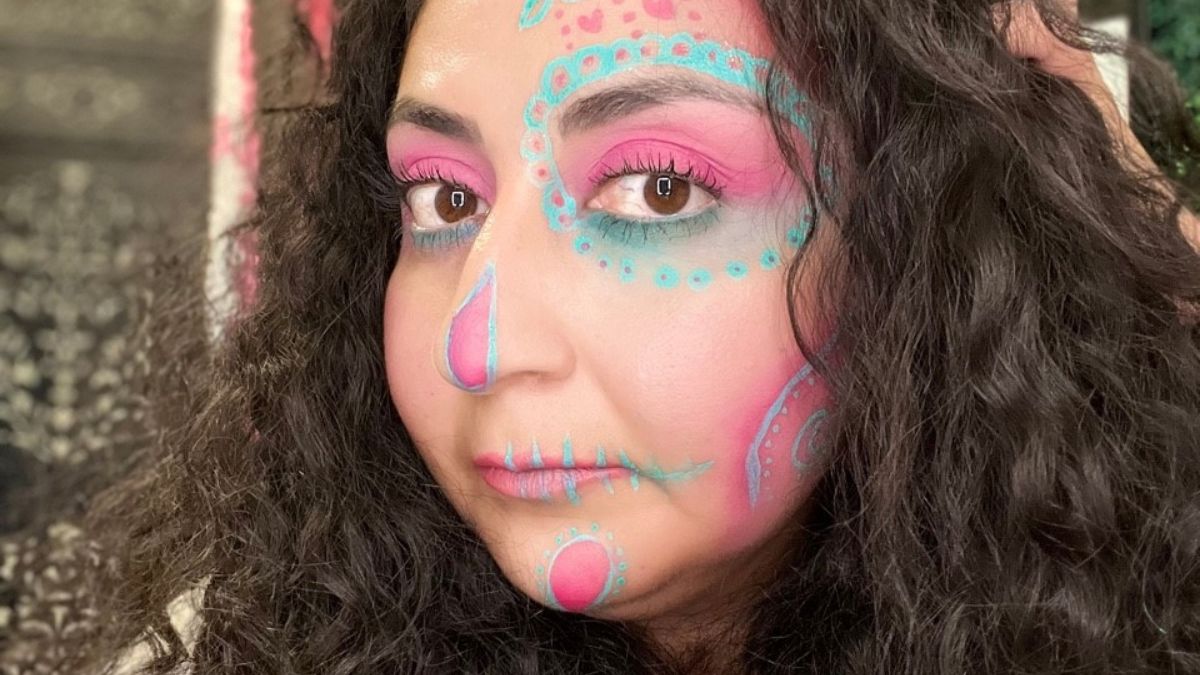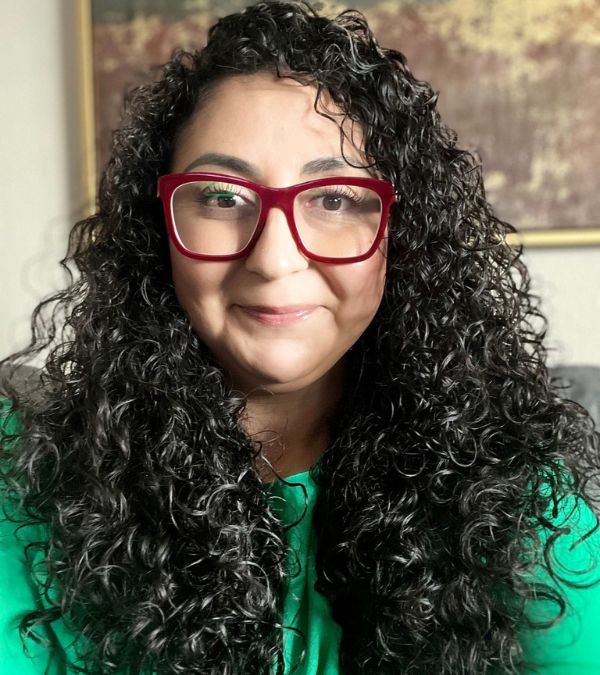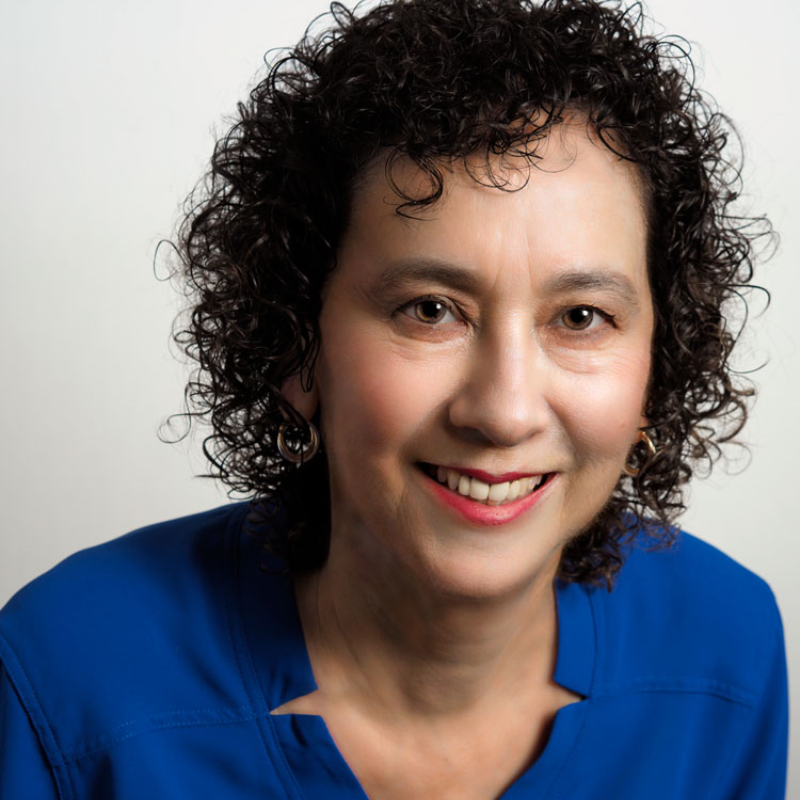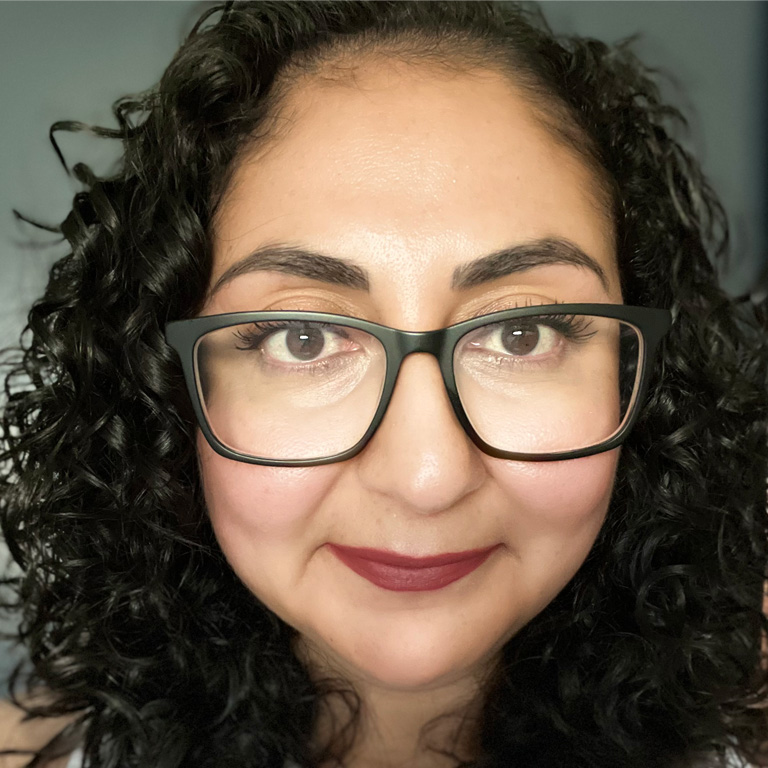Speaking up: Overcoming communication hurdles in breast cancer care
Adriana Huerta bridges the gaps in breast cancer healthcare through advocacy and awareness
- 03/06/24

When Adriana Huerta stepped into what she calls “cancer life,” she knew nothing about how to find her way as a breast cancer patient.
Like many newly diagnosed people, Adriana relied on information and recommendations she received from the healthcare providers she was directed to. For many months, she didn’t know there were other options she could explore.
“I met with whatever oncologist I was assigned. I listened to whatever they said,” she says. At the time, Adriana was 32, with a two-year-old son, a husband, a house near Los Angeles, and a new job. “In my mind, I’m going to do whatever they want me to do because I want to live.”
From the beginning, she faced communication challenges with doctors and other providers who didn’t explain things well – or at all. The problems weren’t due to language difficulties, as Adriana was born and raised in the United States and graduated college. Although she doesn’t think the providers were overtly biased against her due to her Hispanic/Latino ethnicity, she thinks her cultural background might have shaped assumptions doctors made as well as how she interacted with them.
“I didn’t know I could speak up and ask questions,” she says. “I didn’t know what’s right from wrong in dealing with the medical profession.” When she started speaking up, “The doctors made me feel like I’m less-than because they didn’t think I know what I’m talking about,” she says. “But this is my body.”
Navigating breast cancer alone
Adriana was diagnosed in 2020, when COVID pandemic restrictions meant no relative or friend could go with her into a medical setting. Delays were common. After a mammogram revealed her tumor, it took more than two months for a surgeon to perform a breast biopsy. A week later, Adriana hadn’t heard the results, so she called the surgeon’s office from her car during a work break. A clerk answered, scrolled through a computer, and then said, “Oh, yeah, your test came back malignant.”
“I knew what malignant meant,” Adriana says. “So, I knew it was cancer.” She left the parking lot, went into her manager’s office, cried, and then went back to work. “I was in a state of shock,” she says. “This person just told me like it was (standard) bloodwork I got tested.” The clerk also said it would be weeks before she could see a doctor.
She finally met an oncologist in a satellite office of a hospital. The doctor said she tested triple-negative. Adriana was elated. “In my head, I’m thinking, ‘Great! I’m negative for cancer!’ I literally felt a weight lifted off my shoulders.”
Out loud, she said, “Oh, good, it’s negative.” Then the doctor said that TNBC is likely to be more aggressive and have fewer treatment options than other breast cancers. Adriana started chemotherapy that day. Her genetic test results arrived later and showed she also had a BRCA1 gene mutation.
Adriana was not given a team of providers to support her. No professional helped her understand the implications of her diagnosis or saw her through treatment and side effects. She did what her doctors told her to do out of trust that they were the experts.
“I just said, ‘Okay,’ because I’m already in chemo and hopped up on medication. There was no one to stand with me,” she says. She later learned that cancer patients at the main hospital were connected with social workers, occupational therapists, mental health providers, wellness programs and other services she wasn’t offered.


Taking charge of her breast cancer care
For Adriana, gaps in information and limited discussions led to missed opportunities for care. She often felt unheard by doctors.
No one told her about nipple-sparing surgery before she had a double mastectomy. She wanted a second child and thought egg preservation might help but there were no appointments for two months and her cancer was growing rapidly. She agreed to a hysterectomy because her first oncologist told her she’d have to wait eight years before trying to become pregnant.
If there had been better communication with providers, she might have made some of the same choices but would have felt more in control of decisions. “I’m grateful I’m alive,” she says. “I just wish somebody could have said, ‘Hey, let’s wait a few months (after chemo and bilateral mastectomy) for you to breathe, relax, enjoy life, and we’ll keep an eye on your ovaries.” That pause might have given time for her ovaries to recover and for her to talk with a specialist about pregnancy.
Since her mastectomy, Adriana has been flat, a situation she finds uncomfortable emotionally and physically. Now she is advocating for herself, to get DIEP flap reconstruction. Surgeons in her insurance network had refused to do the procedure, saying her BMI (body-mass index) was too high. Surgeons outside her network said her BMI would not stop them from doing the procedure but she couldn’t afford their out-of-pocket fees. Recently, her insurance changed, so she’s looking for an in-network surgeon to do the surgery. [A large 2021 German study found no difference in the rate of flap loss based on BMI, with acceptable risk for complications.]
Bridging cultural barriers in breast cancer through advocacy
Adriana first learned about advocating for her own health from breast cancer patients she met on Instagram and other social media. That’s also where she heard about LBBC’s Young Advocate program. “One of the things that intrigued me to become an advocate is that I did not see anybody like me sharing information and resources or telling people to get a second or third opinion,’” she says.
As a Young Advocate, she wants to help Hispanic and Latino patients navigate breast cancer diagnosis and treatment. She also aims to lessen cultural barriers that affect care by building better understanding of the disease and the importance of genetic testing.
One barrier, fear, keeps many Hispanic families from even talking about cancer, she says. “If they hear a cancer diagnosis, they feel there’s no hope,” says Adriana. There’s a belief that “it’s better not to know” so they can avoid difficult treatments and outcomes. “They don’t know that you can survive this.”
Many Hispanic people also don’t know about genetic testing and its link to cancer prevention and treatment, so it’s not discussed, she says. Some are wary of how personal biomedical information might be used. Although Adriana has a BRCA1 genetic mutation and her family history includes breast and ovarian cancer, her close family members have not had genetic testing. She explained to them why testing could be helpful, but her efforts have been unsuccessful.
As she moves forward in her volunteer work with patients, Adriana hopes to collaborate with medical providers to improve communications and care.
“I’ve learned all these options I could have had, and I have made peace with it,” she says. “Now I just try to help educate others, so they don’t have to go my route.”
DISCLAIMER:
The views and opinions of our bloggers represent the views and opinions of the bloggers alone and not those of Living Beyond Breast Cancer. Also understand that Living Beyond Breast Cancer does not medically review any information or content contained on, or distributed through, its blog and therefore does not endorse the accuracy or reliability of any such information or content. Through our blog, we merely seek to give individuals creative freedom to tell their stories. It is not a substitute for professional counseling or medical advice.
This article was supported by the Grant or Cooperative Agreement Number 1 U58DP006672, funded by the Centers for Disease Control and Prevention. Its contents are solely the responsibility of the authors and do not necessarily represent the official views of the Centers for Disease Control and Prevention or the Department of Health and Human Services.
Stay connected
Sign up to receive emotional support, medical insight, personal stories, and more, delivered to your inbox weekly.



